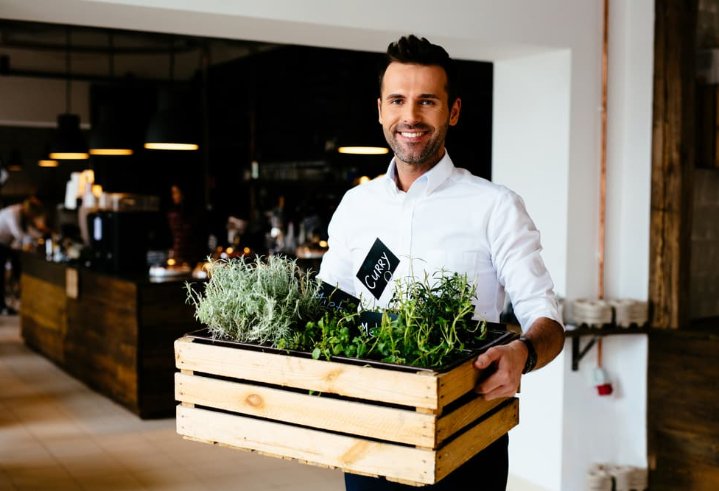5 tips on how businesses can survive a pandemic

There’s no denying that 2020 has taken the proverbial wind out of our proverbial sails; seemingly overnight the COVID-19 crisis stormed in, causing a devastating maelstrom that swept the global community up into a vortex of uncertainty.
In the months since the pandemic hit, it’s hardly surprising that small and medium enterprises (SME) have been some of the hardest hit businesses and it’s likely the economic challenges and hardships caused by its existence will reverberate for some time to come.
However as scientist and engineer Raymond McCauley observed, it’s important to “change what you can, manage what you can’t” during volatile times.
Despite the fallout caused by the ensuing health crisis, building business resilience and future success is still possible even when the immediate outlook may seem bleak.
To point you in the right direction in terms of thought processes and planning, SkillsTalk have put together five tips that might help your business survive and thrive in the coming months and beyond.
Think strategically
Rather than wallowing in a fatalistic mindset (which is an easy trap to fall into during times of crisis), it is highly beneficial to try and take a step back from the current pressure cooker climate; thinking strategically, looking forward and planning beyond “survival mode” offers businesses the clarity to recognise future opportunities.
By focusing on core purposes, customer engagement, operational optimisation and nurturing a positive and supportive staff culture, businesses that can proactively identify a unique point of difference now will have a better chance of coming out the other end of the pandemic healthier and stronger than ever before.
Avoid panic procrastination

Despite many people having high hopes for increased productivity during the beginning of quarantine, licensed psychotherapist and leadership coach, Sarah Greenberg says that, “people are realising [that] this [situation] isn’t the abundance of time and space we originally believed...most of us are holding more than we’ve ever had before.”
In particular, small business owners may feel like they are climbing a mountain just to complete the most straightforward admin or clerical tasks; during times of crisis and thanks to a lack of intrinsic motivation, it can feel more natural to put off than plan ahead.
However, fighting the onset of “panic procrastination” by putting plans in place for the future may be the difference between making it or breaking it once the economy has moved past the worst of the pandemic.
Now is the ideal time to research and reevaluate everything from incorporating new technologies in your business to identifying the evolving needs of customers that will help them thrive within this new world order that has been defined by the impact of COVID-19.
Talk to the tax man
If the coronavirus outbreak has taught us one thing it’s that there are no certainties in life...except for still having to pay taxes.
Regardless of the potentially desperate financial situation many SMEs find themselves in, the tax man doesn’t simply disappear.
In times like these, honesty is certainly the best policy and a candid call to the ATO won’t go astray.
As well as lightening your load in the stress department, an open chat with a tax officer to explain the current state of your business may also help to alleviate a great deal of fiscal challenges in the future.
Exploring payment options, or simply asking for a little more time to settle tax that’s owed, are potential ways for SMEs to find a bit of financial reprieve.
Put in place work from home systems

The need for employees to work from home during the COVID pandemic as a matter of health and safety has perhaps been one of the biggest dynamic shifts that businesses and professional teams have faced since the coronavirus outbreak.
And it can not be reiterated enough how important communication is during these socially distant times; it’s imperative that SME owners establish and set expectations for staff working remotely.
Whether this means putting together a WFH agreement for employees to sign or implementing a procedure for a weekly productivity report, it is vital to keep those on your payroll accountable for work deliverables as well as also offering total transparency in terms of expectations from managers and bosses.
Increasing your business technologies and ensuring in-house resources like internal servers or files are easily accessible to team members are also key to maintaining efficiency and effectiveness.
Finding opportunity in disaster
Oh those silver linings - it might be cliche, but the ability to identify opportunities in times of dismalness and disaster is an excellent way to help shift mindset and mentality and angle it towards a more positive future.
By looking at the world through a longer lens that challenges the status quo, it’s possible to grow stronger and prosper as a business beyond the current crisis.
As American surgeon, Maxwell Maltz once remarked, “close scrutiny will show that most 'crisis situations' are opportunities to either advance, or stay where you are.”
From adopting technology to reach broader audiences to finding new ways to connect with existing customers, times of crisis give SMEs the permission to change their approaches, expand product offerings and create new ways of working and this has the capacity to translate to success, strength and prosperity beyond life in the time of Coronavirus.
Set yourself up for success as a small business owner
Interested in developing real life skills that can help set you on the path to a viable commercial enterprise? Upskilled’s BSB42618 - Certificate IV in New Small Business is a nationally recognised qualification that looks at the Australian business marketplace from a modern, contemporary perspective. For more information, please get in touch with Upskilled today.


)
)

